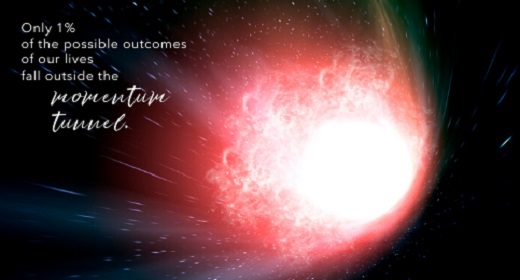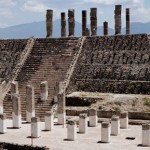by Eric W. Dolan: A naturalistic study published in the journal Scientific Reports provides evidence that
the ceremonial use of ayahuasca can lead to significant reductions in neuroticism, a personality trait associated with depression and anxiety. Ayahuasca, a brew used for centuries by the indigenous peoples of Brazil and the Amazonian basin of South America, contains the powerful psychedelic drug dimethyltryptamine (DMT) and monoamine oxidase inhibitors. Preliminary research has offered some evidence that consuming ayahuasca provides psychological benefits.
“Contemporary practices of ayahuasca shamanism appear to be at least 300 years old, and involve a rich and unique anthropological context including a distinct metaphysics and cosmology,” said study author Brandon Weiss (@BWe1ss), a research associate at Imperial College London.
“The ceremony experience is also unique in containing somatic challenge as the body digests the decoction, emotional challenge as the mind explores its core beliefs and assumptions, mystical experience, engagement with an elder shaman, and communion with other ceremony partners.”
“Given that previous prospective work had observed personality changes in relation to psilocybin use, and previous cross-sectional work had alluded to personality changes in relation to ayahuasca, I felt that investigating possible changes in personality was well warranted in this context,” Weiss explained.
The new research is based on the Five-Factor model of personality, which focuses on five broad characteristics: extraversion, conscientiousness, openness, neuroticism and agreeableness.
“Personality is incredibly useful because it encompasses so much of the manners in which people think, feel, and behave in the world and differ from each other. In fact, there are even new systems of mental illness that seem to fit into the framework of the Five-Factor model of personality,” Weiss said.
“Given this, personality is a useful tool for understanding how human beings psychologically and behaviorally change following psychedelic experience. If there are changes, the Five-Factor model of personality should pick it up.”
For their study, the researchers recruited 256 participants from three ayahuasca retreat centers across South and Central America. The participants completed a variety of scientific questionnaires — including a personality assessment — on the first day of the retreat. They subsequently completed follow-up questionnaires at the end of the retreat and about three months later.
The participants also provided the researchers with the contact information of close significant others, who were contacted and asked to complete surveys about the participants’ personality.
The researchers found that the ceremonial use of ayahuasca was associated with enduring changes in the participants’ self-reported personality. These changes were partially collaborated by their close significant others.
“We found large, robust changes in Five-Factor Model personality traits, particularly negative emotionality (or neuroticism) and openness following ayahuasca use. These changes persisted over three months and were supported by reports from participants’ peers,” Weiss told PsyPost.
The researchers also uncovered some factors that appear to influence the degree of personality change.
“Participants showed even greater adaptive change when they reported heightened mystical-type experiences and experiences involving reappraisal,” Weiss explained. “Reappraisal involved an experience during ceremony of profound changes to former beliefs and apprehensions including gratitude for lessons learned from previous hardship, trauma, and transgressions, acknowledgements of being too hard on oneself, and resolutions to change entrenched patterns of acting/feeling that are not helpful.”
However, only some of the personality changes reported by the participants were collaborated by their close significant others.
“Although we found that our participants reported changes in extraversion, conscientiousness, and agreeableness, these changes were not reflected in the reports of participants’ close significant others,” Weiss said. “One reason for this might have been that our sample size for peer-data did not permit us to detect smaller but still meaningful changes in these traits. We think more work should be done exploring whether ayahuasca can be useful for traits like agreeableness which at its opposite pole indexes quarrelsomeness, manipulativeness, and lack of compassion.”
The study’s main limitation is the absence of a placebo control condition. To help offset this limitation, the researchers included some validity controls, including assessments of suggestibility, expected personality changes, and previous psychedelic experiences. But the researchers noted it is possible that “merely attending a therapeutically designed retreat in a foreign country would in and of itself produce positive changes to personality.”
For example, previous research found that people reported reductions in stress, anxiety, and depression after participating in an ayahuasca ceremony, regardless of whether they had been given a placebo or a dose of ayahuasca.
“We also think investigating how the different components of ayahuasca ceremony add to the therapeutic and salutary effects of the experience could inform the design of current treatments being developed within Western contexts,” Weiss said. “The shaman’s icaro prayer, the openness to new metaphysical paradigms that challenge materialist ones, the challenging aspects of ayahuasca particularly, and the communal group format may all serve a profound function in their own right and should be studied further, perhaps within the context of controlled studies in which different study conditions contain different elements of the full experience. At the same time, we respect that sometimes the whole is larger than the sum of its parts, and the gestalt of this indigenous practice should be respected as it is.”
The study, “Examining changes in personality following shamanic ceremonial use of ayahuasca“, was authored by Brandon Weiss, Joshua D. Miller, Nathan T. Carter, and W. Keith Campbell.










































